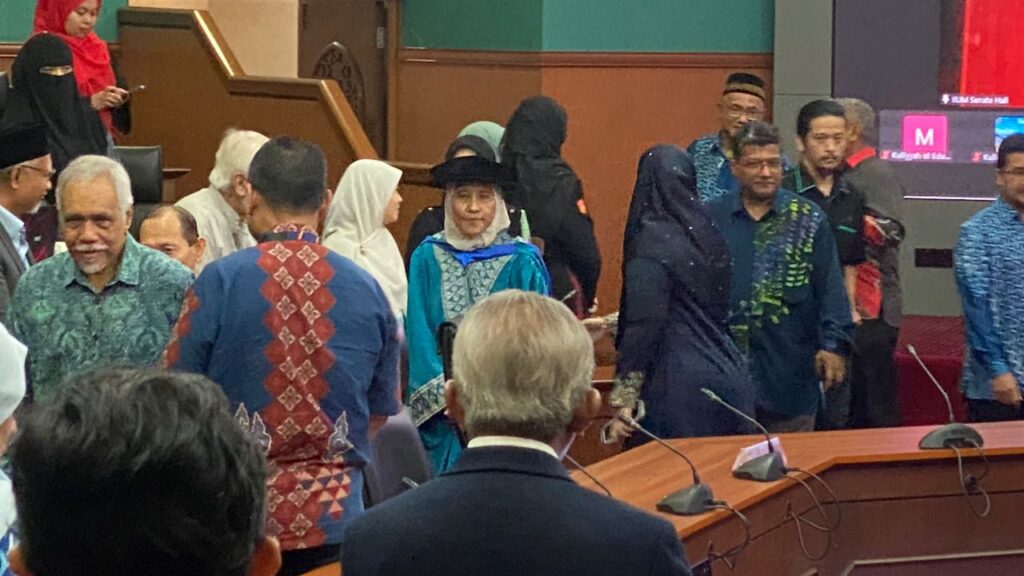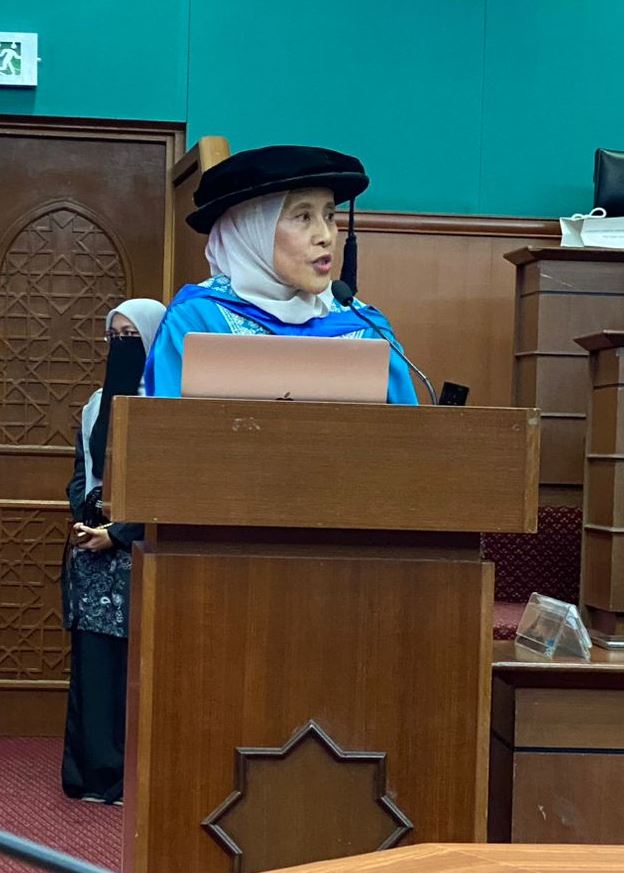By, Aida Mokhtar
Recently, I was honoured to be invited to the Inaugural Professorial Lecture at the International Islamic University Malaysia (IIUM) by a professor at the Kulliyyah of Education of the International Islamic University Malaysia (IIUM) – Professor Dr. Ratnawati Mohd Asraf. Her presentation at the prestigious lecture was the evergreen topic titled, “No Learner Left Behind: Our Role in Addressing the Educational Needs of Neurodiverse Learners with Autism, Dyslexia, and ADHD.” She was presenting on the importance of being inclusive in education; the ‘be inclusive’ brand message for persons with disabilities (PwDs). Disability inclusion is a narrative that needs to be reinforced continuously by everyone, by all stakeholders including brands. Brands that fail to make products that are accessible are said to be losing billions, reported an article featured in Marketing Week, recently.
I have known Professor Dr. Ratnawati for about six years and have a lot of respect for her as a colleague and one of the top professors at the university who is hardworking and conducts herself with great professionalism and approachability and has great passion in doing research as reflected by her inaugural lecture.
I was elated to be invited as one of the writers of a book she edited, “You Are Not Alone: Our Stories of Overcoming the Challenges of Autism, Dyslexia, and ADHD” on the experiences of six parents who are raising children with autism, dyslexia and attention deficit hyperactivity disorder (ADHD) that have common characteristics. I had shared my experience raising my son with autism with the hope to inspire others through the book.
The aim of Professor Dr. Ratnawati’s inaugural lecture was to create awareness of the learning challenges of students with Autism, Dyslexia, and ADHD and the role of parents and teachers, and society—in supporting them so that they can learn and prosper, given the right approach. Professor Dr. Ratnawati additionally underscored the misunderstandings surrounding neurodiverse learners that are due to the lack of awareness and knowledge. She gave illustrations of these conditions that are characterised as being “invisible” thus not obvious; learners with dyslexia are often thought of as being slow or lazy while learners with autism are sometimes misconstrued as being disruptive when they feel distressed or when they have a meltdown, while those with ADHD are sometimes seen as being noisy and disruptive. All this has caused a considerable number of them to have bad experiences at school impeding their effective learning. She then underlined that if the situation were prolonged without any intervention, these learners are likely to have a lower self-concept; experience increased levels of anxiety; and be at greater risk for emotional or psychological problems, which may lead to juvenile delinquency (as shown in countless research studies). The negative consequences are horrifying.
Disability inclusion is a brand message that involves many target audiences. In light of the role of parents, teachers and the bigger society in supporting learners with disabilities, it brings me to the United Nations Convention on the Rights of Persons with Disabilities (CRPD) of which Article 24 states that States Parties (that include Malaysia) recognise the right of persons with disabilities (PwDs) to education on the basis of equal opportunity allowing for inclusive education at all levels along with lifelong learning. Inclusion for neurodiverse learners and other learners within education is deemed essential and parents, teachers and the community at large have the obligation of ensuring that it is practised.
As a parent of a son with autism I also convey the brand message of disability inclusion wherever I go. I can relate to the important role of the parent, the teacher and the society in educating the child with disabilities. My son was diagnosed with autism in the United Kingdom when he was 11 years old and for many years my husband and I were uncertain of what to do and how to manage him. We firstly accepted that our son is neurodiverse thus, we were spurred to learn about autism, we reached out to teachers, paediatricians, psychiatrists, therapists and other professionals and family for support.
Putting children with learning disabilities in education with a good support system should be the aim of all parents and teachers. Getting support is one part of the issue solved but making sure it is effective is another. After all, education for neurodiverse learners has goals too that need achieving.
With my son, my husband and I are the ones that have set goals for him and encourage him to follow the path in education that we had planned for him. It is a relief when teachers (now it is lecturers) support him by providing him with lecture notes, extra time to answer exam questions, words of encouragement and other forms of support. I am so relieved of the support system that has been granted to him and it gives me great peace of mind and enables me to function better at the workplace and in life as whole as my anxieties concerning him are alleviated. I am ever so grateful!
There is never too much support. At the IIUM, we have the Disability Services Unit (DSU) that provides support for students and staff with disabilities at the university and the Support Association for Parents of Special Needs Children (SUPPORT) for IIUM staff who have children with disabilities and Professor Dr. Ratnawati highlighted these in her speech which is admirable!
For parents of children with disabilities, creating awareness about inclusion in education and inclusion in society overall should be an ongoing and tireless effort. It is timely for this to be presented in such a prestigious event such as the Inaugural Professorial Lecture at the IIUM.
Thank you Professor Dr. Ratnawati and the IIUM for highlighting the important subject matter on the inclusion of neurodiverse learners in education in such an honourable manner. May you and your family be blessed!***

- UTCC and IIUM Sign Historic MoU Fostering Closer Relations - August 8, 2025
- Happy Mother’s Day from IIUMToday - May 12, 2025
- IIUM Rector Launches ‘Support our Special Podcast’ in Special Eid Celebration - April 24, 2025
